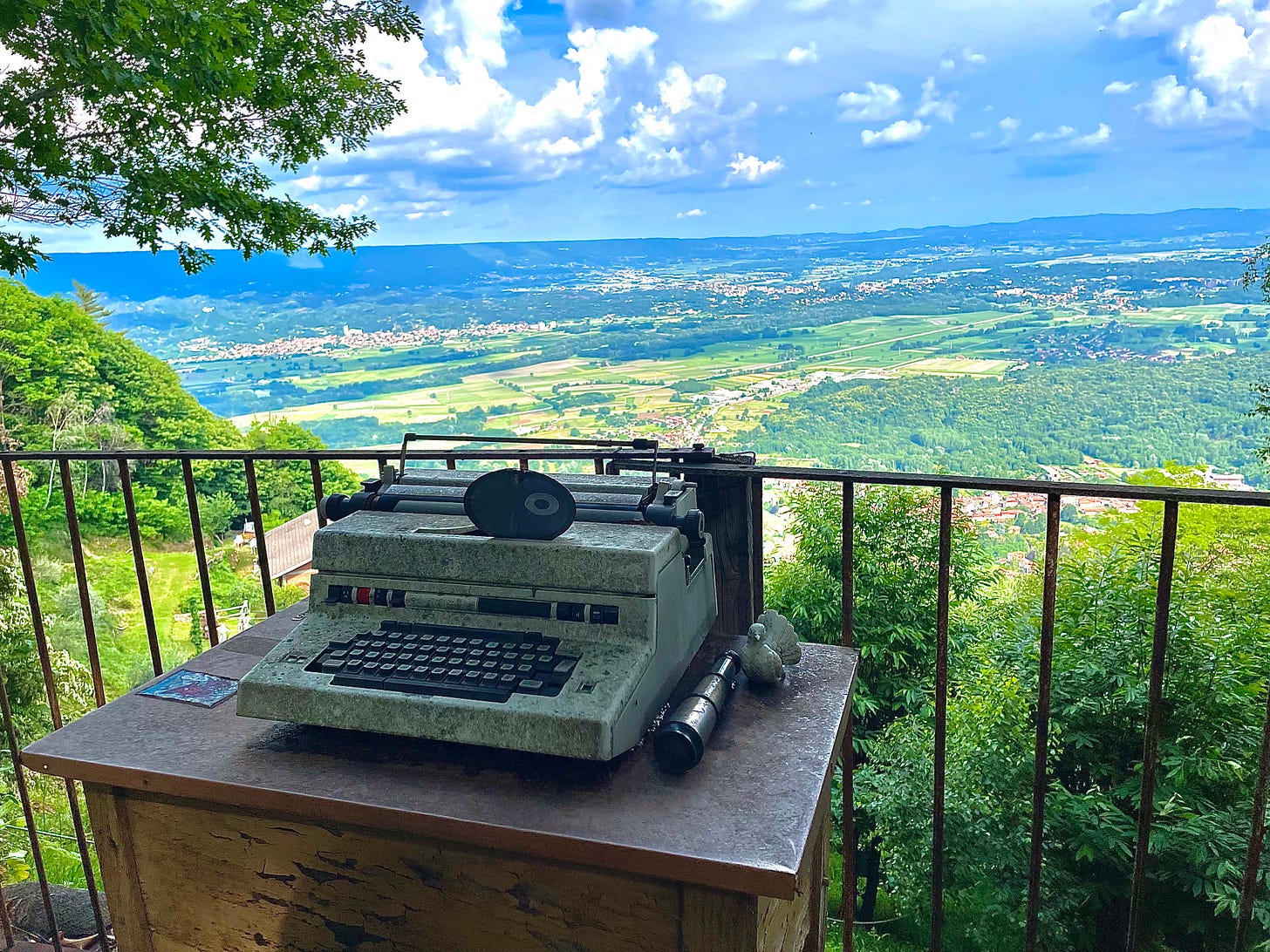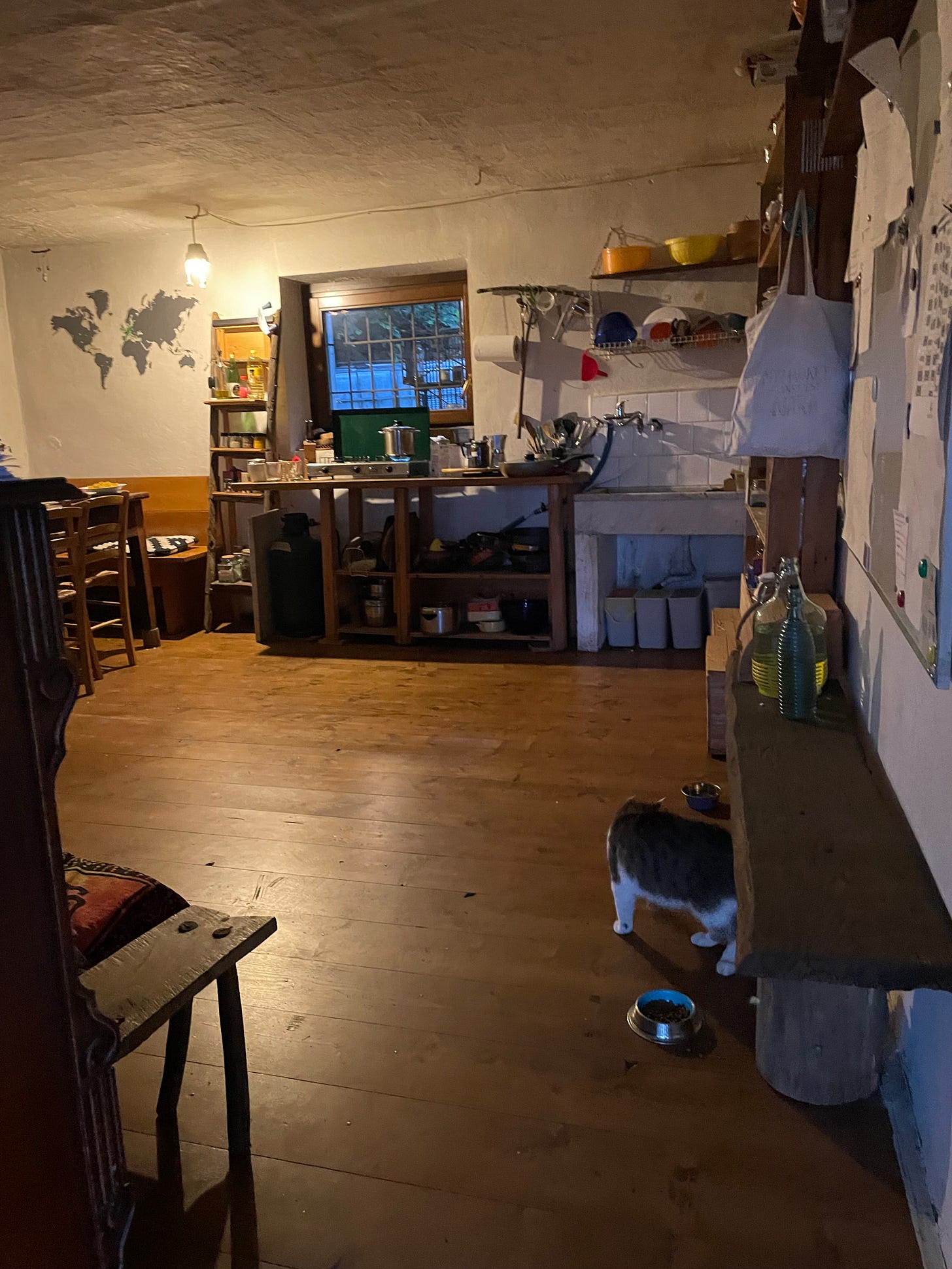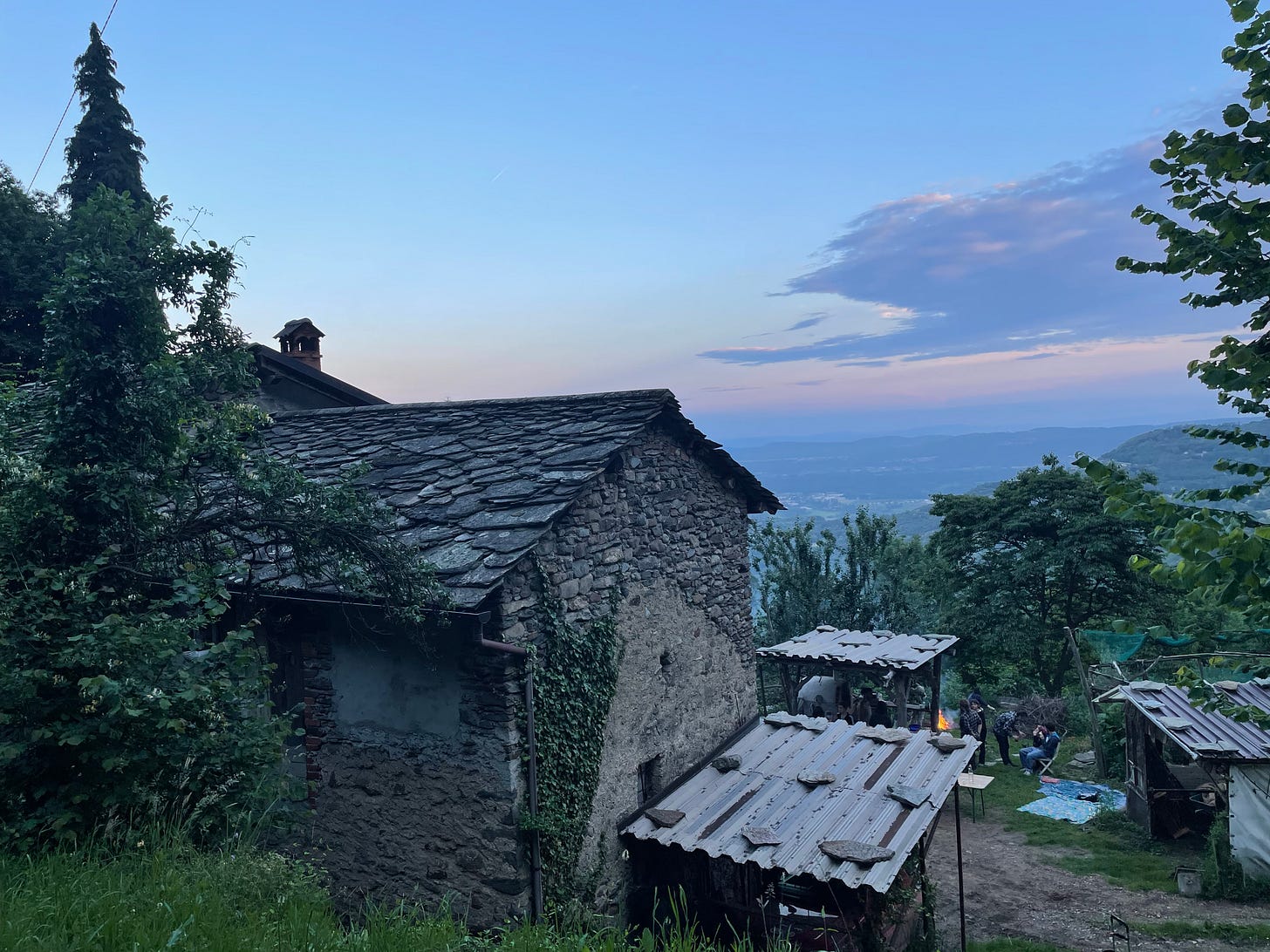When I was in Italy, I traveled on $50 for two weeks.
How?
I volunteered on a farm in the mountains. 1
This place was beautiful.
It was a near self-sustainable farm. It was a mass of greenery and it had a human composting toilet, fresh mountain water, a vegetable garden, and everything was on solar power.
It was beautiful and nested near a few small Italian mountain villages.
But the only problem for me was that it didn’t have a fridge. They had a few cold storage rooms, but it didn’t make sense to buy much meat.
So naturally, they tended to eat a vegetarian diet.
I’m no vegetarian, and very soon I politely let my host know that I was starving and needed some more protein.
He kindly bought me some eggs.
But unlike last week’s story, it doesn’t end with eggs. The eggs are the beginning.
One day for lunch break in the cozy wood kitchen, I was having a conversation with another volunteer.
She was an Italian girl who lived in Spain but was also volunteering on the farm.
I was cooking up eggs while she was to my right, making some Italian coffee in the moka pot.
Now, we’d already known each other for a few days at this point. She had short, pink hair, and my first impression of her was that she was a “hippie.”
She probably saw me as some buff American who loves to eat meat and drive big trucks.
She was nice, though. One of those people you probably wouldn’t be close friends with, but someone you can still share good company with.
Over time, we connected on simple things. Enjoying nature, having coffee, talking Italian culture, and speaking Spanish.
Then it came.
At some point, she started going off about how I should be eating less meat and animal protein because it’s bad for the environment.
She started spitting out some reasons why.
I wasn’t really listening while I was cooking those eggs. That animal protein was scarce, and I had never been so stoked for eggs in my life.
I also didn’t want to listen to her rant, either.
I’ll be honest: I’m no environmentalist. I was raised on the more conservative side of things and tended to discount anything related to being “environmental.”
But then I realized something: this was the perfect time to apply something I just learned in a book.
“Assume that the person you are listening to might know something you don’t” 2
As I sat down to devour those precious eggs, I said to myself:
Let’s just listen to what she has to say. Without judgment.
I wanted to say “shut the fuck up already.” My past self would’ve assumed that I was right and she was wrong.
But maybe there’s something I was missing or wasn’t aware of.
The process of exploring new ideas and beliefs changed my life, so I figured I’d give it another shot.
My blood was boiling.
But I calmed myself down and said to myself, we’re only on listening mode right now. Ask any questions if you’re confused, but don’t cast judgment.
So I took out my mini notepad and wrote down any notes to try to understand the world from her perspective.
This was an immensely difficult thing to do.
But cultivating this intellectual humility is a superpower.
As F. Scott Fitzgerald, the author of The Great Gatsby, once wrote:
“The test of a first-rate intelligence is the ability to hold two opposed ideas in the mind at the same time, and still retain the ability to function.”
I’ll share those notes with you in the future.
The takeaway is this: even if you think someone is wrong, don’t argue. Listen and assume they know something you don’t.
In the classic book The 7 Habits of Highly Effective People, this is Habit #5:
“If I were to summarize the single most important principle [of relationships] … it would be this: seek first to understand, then to be understood.”
It’s tough.
But assuming we’re right is that’s what isolates us from our fellow humans today.
We don’t give people the light of day. We interrupt. Then we get into arguments.
As Dale Carnegie advises in his timeless book, How to Win Friends and Influence People:
“The only way to get the best of an argument is to avoid it.”
Trying to prove that the Italian girl was wrong wouldn’t make her like me. We still had time to spend together and work to tackle on the farm.
Not only that, but trying to prove she was wrong would make her feel inferior and hurt her pride.
It’s not always about winning. It’s about listening.
That’s a skill I think we could all improve on.
Whether that’s with people close to you or someone you just met the other day, listen for the sake of listening.
Ciao,
- BB
PS: Enjoy a couple more photos from my volunteering experience. If you ever get the chance to visit, it was near the Italian village of Brosso.
(This button should say “Subscribe Now” but it glitches out in email).
If you liked this, you’ll enjoy my daily short-form writing on Twitter. It’s where I share most of my ideas, stories, and thoughts.
I discovered this through a website called Workaway. After you sign up, you can apply to volunteer at places across the world. Free accommodation in exchange for a maximum of 5 hours of work each day, only during the week. Really cool.
From Clinical Psychologist Jordan B. Peterson’s book, 12 Rules for Life







Awesome post! The continuation of eggs but in a different way. Cool to hear about! Want to hear more about your workaway!
Loved this line in your article: 'It’s not always about winning. It’s about listening.'
So true - thanks for the reminder :)